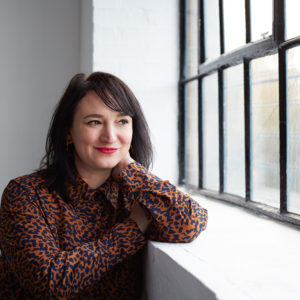
Gemma Taylor
Gemma Taylor is a treatment activist and editor of www.makemedicinesaffordable.org
I received my first COVID-19 vaccine last week.
I’m 42, with no known underlying health conditions, and I’m not a frontline worker.
I live in the UK, which has bought more than enough doses to vaccinate everyone twice over, but even so, my most optimistic expectation was to get my first jab this August or September.
Due to being called early, I thought there might have been a mistake, but joining the line of women, all around my age, assured me there hadn’t been, I was ‘rightfully’ there.
However, if any of them, like me, were wondering if we had somehow managed jumped the queue – it’s because we have.
Thanks to my speedily accessed vaccine, in just a matter of weeks I will be able to go to the pub without worry. Yet healthcare workers in low-income countries still can’t go to work without risking their lives.
Low-income countries have received just 0.2% of the vaccines administered so far. Some healthcare workers may not be vaccinated until 2022 or 2023.
I work for a campaign called Make Medicines Affordable, which believes access to all essential treatment and vaccines should be equal.
One of the countries we work is India. While the UK tentatively re-opens, India, despite being a middle-income country, is running out of hospital beds and oxygen. My colleagues in India face a higher risk than me, but they haven’t been vaccinated. Despite the growing number of cases and fatalities, only 9 out of every of 100 people have been vaccinated in India, compared to 66 out of 100 in the UK.
The new variants identified as originating in India – as well as in other places with a low rate of vaccination – have developed precisely because of that fact. Where there is a lower percentage of people vaccinated it gives the virus chance to spread and mutate, and some of the resulting variants may be vaccine-resistant.
“Unequal access to vaccines, gives variants the opportunity to thrive.”
There are two key reasons preventing equitable access.
- Firstly, countries like mine have bought up more doses they need – and pharmaceutical companies have agreed to supply in this uneven way, despite being aware of the consequences.
- Secondly, pharma companies are doing everything they can to retain control of production and profits, as if it was ‘their’ invention, despite huge sums of public investment being invested into vaccines. The Oxford/Astrazeneca vaccine that I received was 97% publicly funded.
That’s why World Trade Organization (WTO) members must support a proposal that was submitted by India and South Africa to the WTO back in October 2020. The proposal would temporarily waive intellectual property protections on all COVID-19 vaccines, treatments, diagnostics, etc. Currently the richer countries, those which are heavily lobbied by the pharma industry, are blocking it. A US-based poll has shown that this is not reflective of public opinion.
What it does reflect though is a false sense of security. The desire to vaccinate everyone ‘at home’ while simultaneously blocking an action that prevents other countries from doing the same, is not just selfish, it’s downright stupid. I hope I will be enjoying a British beer garden soon, but if we don’t protect everyone, everywhere equally, last orders might be called early on a summer of freedom – if new vaccine-resistant variants are identified because we didn’t act fairly – it could put us all back to square one.
“If we don’t protect everyone equally, last orders might be called early on a summer of freedom.”




